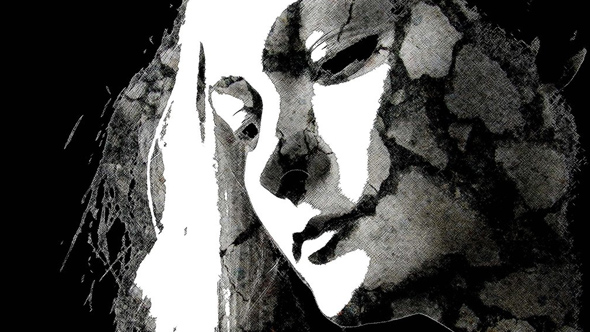
Those of us in the lesbian, gay, bisexual, trans* and queer (LGBTQ) communities will soon find ourselves bombarded with Tory appeasement as the first same-sex marriages are conducted in England. Marriage can be beautiful, meaningful, and vital for enacting immigration rights, but what does marriage mean in terms of state sanctioned intimacy and the affect this has on relationships that are abusive? How does LGBTQ marriage discourse marginalise discussion about domestic abuse?
Marriage isn’t just a symbolic union between two consenting adults. It is a contractual union between two people and the state. Proceed with caution when David Cameron espouses marriage as an element of “family values”. Remember his “family values” are enshrined in a government that with one hand offers same sex marriage, while the other continues to cut funding to domestic violence services. Do we want to be in a marriage with David Cameron’s state?
As a queer feminist I find the terms ‘equal’ and ‘marriage’ to be uncomfortable bedfellows. Any marriage is a construct that in and of itself creates inequality through hierarchies of relationships, privileging couples that are sanctified by religion and/or sanctioned by the state. Marriage legally binds one person to another and, in some situations, it can create additional hurdles for people who want to leave an abusive partner.
Domestic violence is any form of psychological, emotional, financial, physical, and/or sexual abuse by a family member or intimate partner. Research suggests that gay and lesbian people experience a similar rate of domestic abuse as heterosexual women. There is also data that shows bisexual people and transgender people are at an increased risk of experiencing domestic abuse at some point in their lifetime.
Some of this abuse is similar to that which is experienced by heterosexual, cisgender women (Cisgender is a term used to describe someone who identifies with the gender assigned to them at birth.) However, the social context of homophobia, biphobia and transphobia create a situation that is unique. For example, a perpetrator of abuse may threaten to ‘out’ somebody’s sexuality or gender identity to people whom they do not want to tell and put that person in a situation where being known as LGBTQ may make them vulnerable to discrimination, harassment or abuse; whether it be from family members, religious communities, work places, or friends.
Marriage is contractually binding, it is a heteropatriarchal structure, and a person cannot easily terminate this contract through divorce. The complications of divorcing can result in victims/survivors of abuse feeling trapped in a relationship, or left with legal hangovers from their former relationship. Astonishingly, even in cases where abuse has been proven, a person cannot petition for divorce until a year of their being wed has passed. Abuse comes under a category in English divorce law termed “unreasonable behaviour”, and people can have civil injunctions banning a partner from communicating with them and still be denied a legal possibility for divorce. Furthermore, cuts to Legal Aid under the Conservative Government mean that attaining a domestic violence injunction can cost a significant amount of money, and attaining the fees to successfully file for a divorce can be unaffordable.
Similarly worrying is the Marriage (Same-Sex Couples) Act 2013’s Spousal Veto on Gender Recognition and its impact on transgender people and those who are questioning their gender. Transgender people may seek a Gender Recognition Certificate (GRC) in order for their gender to be legally recognised. If a transgender person is in a marriage, however, they cannot apply for a GRC without either their spouse’s written consent or by filing for divorce. If a spouse contests the divorce it may take a number of years for the transgender person to attain their GRC. The Spousal Veto proved so troubling that it’s recently been dropped in Scotland, yet remains in England. The level of power and control it gives someone over their transgender partner is very concerning. If their partner is abusive, they may use this legislation to further ridicule, deny, and disempower.
Many LGBTQ people in England on spousal visas may fear that if they leave their abusive partner they will not be allowed to remain in the country. This can be a particularly intimidating prospect to LGBTQ people who are from countries where LGBTQ people are criminalised or are at high risk of targeted violence. A person does have the right to settle here in England if they can prove their relationship broke down due to violence. However, many people are unaware of this possibility, have difficulty evidencing abuse, or are unable to access the support they need to advocate for their rights.
Many victims/survivors do not recognise their relationships as abusive. This is especially the case for LGBTQ people who are less likely to come across relevant materials and support services that reflect their identities. Domestic abuse can have a devastating impact on someone’s physical and emotional well-being. Many domestic abuse victims/survivors experience depression, post-traumatic stress or substance misuse. It is common for victims/survivors to report a decrease in their self-esteem, feelings of fear, and difficulty concentrating. LGBTQ domestic abuse victims/survivors experience high rates of homelessness, self-harm, and thoughts of suicide.
If we, as LGBTQ people and allies, campaigned for marriage then we likewise need a campaign for divorce. Marriage is surely at its best when both partners consent to remaining within it. To deny access to divorce can perpetuate unhealthy and, at times, abusive relationships. Celebrate LGBTQ marriage by fighting for further LGBTQ justice. LGBTQ divorce to help protect LGBTQ lives.
By Sarah Golightley – For support or information call Broken Rainbow | brokenrainbow.org.uk | 0300 999 5428









